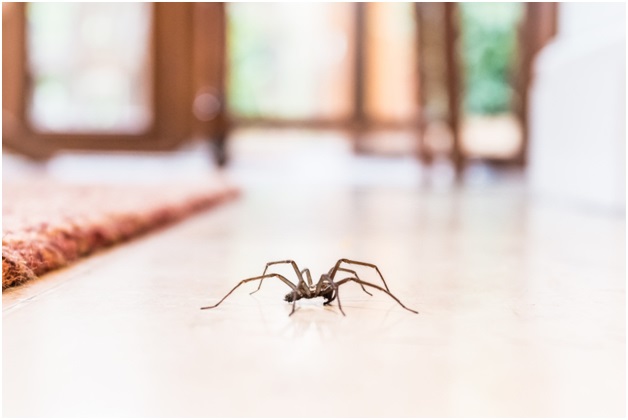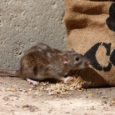Do you think you might have a spider infestation? Having a few spiders around to help control the other creepy-crawly pests at your home is great until those spiders begin to make themselves too comfortable and begin to infest your home. These are some common signs of spiders that can help you put a stop to the infestation before it starts.

Keep reading to learn more.
-
Spider Webs
One of the earliest signs of spiders is the appearance of their webs. While one or two webs here and there isn’t a cause for concern, you should pay attention if you start to see more.
An abundance of webs is an indicator that an infestation is beginning on your property. There could be webs inside your home, or outside on your porch, around the windowsills, or in your garden.
The webs will be in all different shapes and sizes, it just depends on the type of spider creating it. Some will be large and expansive, small or delicate, or even in the shape of a cone. However, not every spider will create a web, the Brown Recluse Spider is an example of a species that is not a web builder.
-
Egg Sacs
When spiders reproduce they lay hundreds of eggs at one time and wrap them all together in a silk ball known as an egg sac. If you see egg sacs in your home this is an early indication that you are about to have an infestation.
Once the eggs hatch, hundreds of baby spiders will be released into your home and will start looking for an area to call their own. Eventually, they will mature and reproduce which will add to their numbers. If you see any egg sacs in your home, you need to call an exterminator to help you get rid of the problem.
-
Seeing an Increase in Spiders
If you have lived in your home for a while you might have a good idea of what types of pests frequent your home and when they have a tendency to show up. Spiders have a tendency to hide, so you may only see them from time to time. If you begin to see them more frequently then it means they are multiplying more frequently at your residence.
Usually, the presence of more spiders at your home means that there is an increased amount of other pests. The spiders will become attracted to your home because of the other pests and will stay while it remains bountiful.
-
Lots of Flying Insects
An increase in mosquitoes, flies, moths, or other flying insects that are small will attract spiders. Spiders are predatory creatures and will be attracted to the number of pests that are on your property.
Spiders who create webs will flock to your property once they realize they can easily catch their prey there. To reduce the number of spiders you first need to control the number of flying insects that are present by getting rid of whatever is attracting them and setting up some traps.
If you are noticing an increase in wandering spiders, those who don’t create webs, then you might be attracting a lot of crawling insects. Cockroaches, beetles, or ants will attract these types of spiders.
You should inspect your home to discover what is attracting these crawling insects and remove them from your home. If the situation is too severe then it is time to hire a pest control company.
-
Insect Bites
Most spiders will only bite you if they become startled or feel they are being attacked. Small spiders do not have fangs that are strong enough to pierce your skin, but larger spiders can.
Spiders will generally bite you if they have been hiding in a shoe, piece of clothing, or in the sheets of your bed, and are disturbed by you. If you begin to notice insect bites that you can’t explain, this is likely a sign of an infestation.
-
Increased Moisture
Your home might be a perfect place to attract spiders if it is constantly moist or humid. If your whole home isn’t humid, and just a few corners are, the spiders might just become attracted to those areas.
Attics and basements are also a great place to attract pests. These areas of your home generally aren’t temperature-controlled and are usually dark and damp. This is the perfect setting for them to hide and create their home.
To prevent infestations, you should consider adding a fan to these spaces. The fan will help circulate the air and keep the space dryer and cooler.
-
Cracks and Crevices
Older homes that have settled over time can produce cracks and crevices. These are great places for spiders to hide because it is dark and they feel protected there. You should inspect your home frequently and fill or patch any of these types of areas you find.
You should also make sure to keep your sheds, attics, and basements clear of clutter. Spiders will inhabit these areas and can even be brought inside your home if you bring any boxes or other items inside without inspecting them first. These hitchhikers can then lead to an infestation of your home.
Learn More About These Signs of Spiders Today
These are some of the most common signs of spiders that you should watch out for in your home. If you see an increased amount of spiders or the presence of webs in your home, or around your property that is a sign that an infestation is starting to occur.
Dark corners of your home or property that are warm and humid can also attract spiders so you should consider adding some ventilation to the space to help cool and dry it out. Keep your sheds, attics, and basements clean and fill all cracks and crevices to help deter the pests from infesting.
If you would like more pest control tips or information be sure to visit our website daily!




